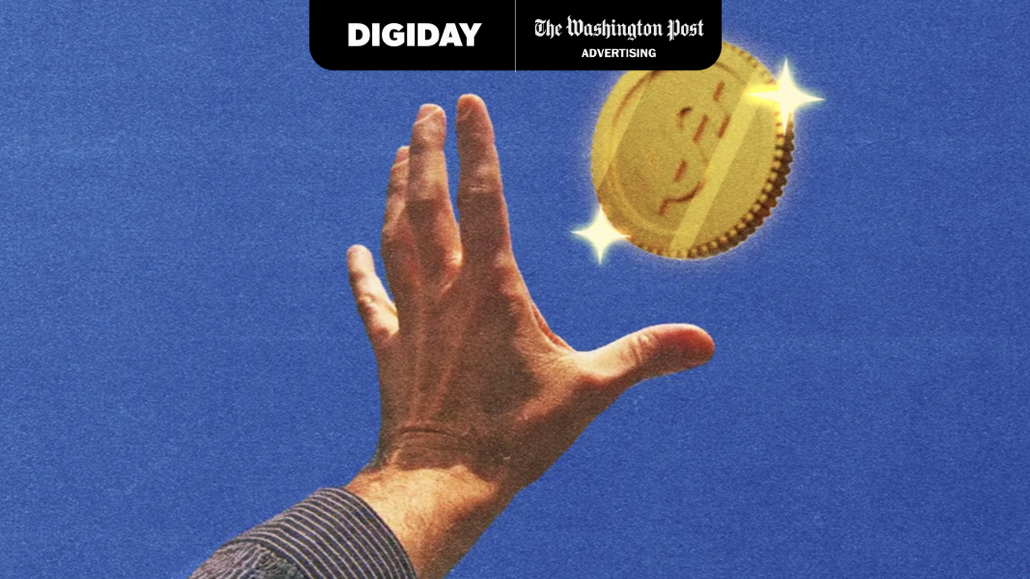Secure your place at the Digiday Media Buying Summit in Nashville, March 2-4
Omnicom Media Group helps to push for ad-auction clarity and standards with broad industry cooperation

Keep up to date with Digiday’s annual coverage of Advertising Week in New York. More from the series →
With Advertising Week upon the marketing and media industries, Omnicom Media Group is working behind the scenes to establish standards across a few vital areas that currently lack transparency, Digiday has learned.
First off is an effort by Omnicom Media Group to help establish clarity and perhaps even standards in the ad auction process of investing in media, which the network estimates at around $600 billion in global spend. OMG is working through the Media Rating Council’s Auction Standards Working Group, for which Ben Hovaness, chief media officer for OMD, is steering committee chairman.
With a goal to standardize practices, policies, measurement, reporting and transparency in digital ad auctions, the Auction Standards Working Group was first formed in May but had its first kick-off meeting in August, at which some 70 companies participated — platforms, marketers, sellers, auctioneers, industry organizations — and other holding companies, in a rare moment of cross-industry cooperation.
Given how much money flows through auctions, it’s an opaque and complicated process, with each auction firm using its own methods, and buyers often left in the dark about how winners are determined, how prices are set and how much an advertiser paid for a winning bid.
Hovaness explained that the first step was getting the industry organizations onboard — ANA, 4As, WFA, MRC and IAB Tech Lab — but working through the MRC attracted broader industry participation.
“I was most pleasantly surprised by just the breadth of participation and support from across the industry,” said Hovaness, who noted that nearly 80% of auction transactions are through walled gardens not programmatic firms. “It’s not just limited to the big walled garden type platforms, but also including all different types of programmatic stakeholders, from ad exchanges down to companies that offer ad serving services.”
A major next step is sending out a questionnaire to all 25 participating auction firms asking for info on their processes — and the steering committee meets again today to push that questionnaire forward, he added.
The info gleaned from the questionnaires, Hovaness hopes, will “guide how we write the ultimate standard that is going to define the industry expectation for how auctions are conducted — basically setting some guardrails around it. Because we do believe there’s room for a multiplicity of auction types, but there do need to be some guardrails around what practices are and are not permissible.”
“The more visibility we have into the ad auction process, the more confident we can be in the integrity of digital ads marketplaces and the strength of our buying strategies – and that benefits all stakeholders,” said Katherine Freeley, the head of Media Center of Excellence at Boehringer-Ingelheim.
So far, most of the auction firms are aboard and ready to cooperate. “From my early days on the buy side to now, I have consistently highlighted the importance of making dynamic media purchasing decisions that are optimized with real-time data, informed by immediate insights, and executed on the fly,” said Jamie Power, svp of addressable sales at Disney Advertising. “We commend and support the efforts of the Working Group in sparking this vital discussion about enhanced insights and transparency in auction-based media.”
Joanna O’Connell, OMG’s chief intelligence officer, also oversees OMG’s Council on Accountability and Standards in Advertising (CASA), which has worked for four years to help establish standards across most of the digital investment spectrum.
She noted this is the first time the CASA model is being applied outside OMG. “Auctions are so much bigger than just programmatic — and the programmatic ecosystem is very, very large. So to be able to bring conversation to bear on such a scaled and ubiquitously utilized set of methodologies feels huge to me,” said O’Connell. “And it feels right in line with CASA. What Casa does is it drives change in the platforms. And so when it’s driving change in the platforms, frankly, everybody benefits.”
According to Ron Pinelli, MRC’s svp of digital research and standards, “auction participants should have access to a consistent level of clear disclosure and reporting regarding how auctions work and the related results, so that they may meaningfully understand and can utilize this information to adjust their auction strategies accordingly. We hope that this effort … will help create industry-accepted reporting and disclosure standards that enable greater transparency and a compliance auditing framework for auction operators that choose to submit for validation against it.”
More in Media Buying

Future of TV Briefing: CTV identity matches are usually wrong
This week’s Future of TV Briefing looks at a Truthset study showing the error rate for matches between IP and deterministic IDs like email addresses can exceed 84%.

Canadian indie Salt XC expands its U.S. presence with purchase of Craft & Commerce
Less than a year after buying Nectar First, an AI-driven specialist, Salt XC has expanded its full-service media offerings with the purchase of Craft and Commerce.

Ad Tech Briefing: Publishers are turning to AI-powered mathmen, but can it trump political machinations?
New ad verification and measurement techniques will have to turnover the ‘i just don’t want to get fired’ mindset.








